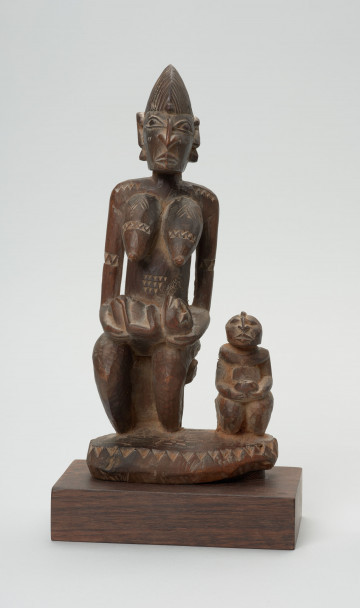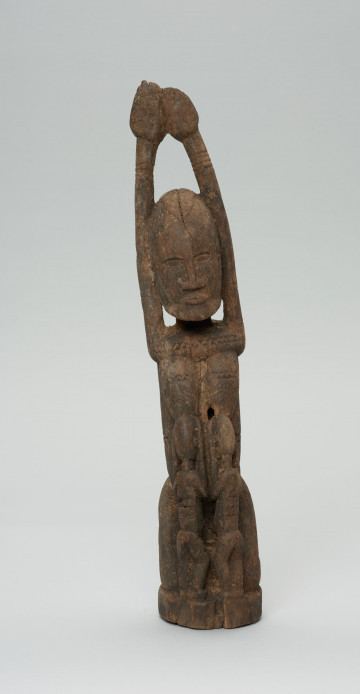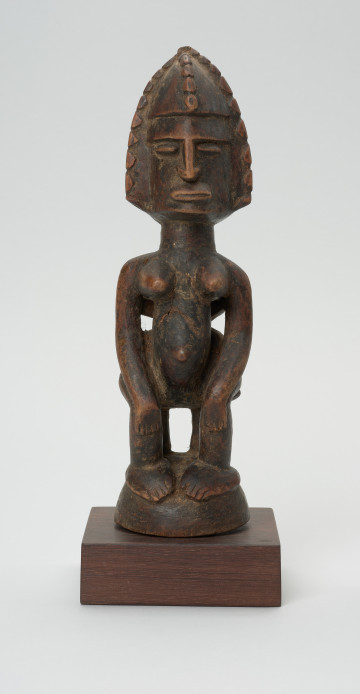
Figure - woman with child
między 1951 — 2000
National Museum in Szczecin
Part of the collection: Collection of Dogonian art
Dogon art abounds in depictions of a woman with a child. These symbolically allude to maternal love and female fertility, which are highly valued in Africa.A woman notices that she is pregnant based on typical symptoms, such as the absence of menstruation, general tiredness, enlargement of breasts. As soon as the woman finds out that she is pregnant, she informs her husband, who loosens the cords of his trousers and walks around in loose ones until the birth. From time to time, he should have sexual intercourse with his wife to facilitate childbirth.After the woman becomes pregnant, she is given a salt pail by her husband (or the child's father), because, according to the Dogon, its consumption is significant for the proper development of the child. A pregnant woman never sleeps at night on her back or stomach but is always on her side to protect the child. She does not consume spicy foods, especially the hot spice called pima, which has abortive properties. The drink bin'dani, a boiled kunandji alcoholic beverage obtained from the fermentation of the wild fruit of the bi bush, Spondias birrea, has a similar effect. A woman also avoids eating lizard meat for fear that the child might be born skinny, sickly and dwarfed. Eating monkey meat, on the other hand, risks making the child ugly, quarrelsome and messy. Specific prohibitions also apply to the father, who should not approach any important altars during his wife's pregnancy, especially those of Yapirim, the protective deity of women, whose cult is one of death worship, and Lebe, the mythical ancestor embodying the powers of plant vegetation. He should also not consume the meat of animals sacrificed or look inside a smokehouse.
Ewa Prądzyńska
Author / creator
Dimensions
cały obiekt: height: 18,7 cm, width: 4,4 cm
Object type
figure
Creation time / dating
Creation / finding place
Identification number
Location / status

między 1951 — 2000
National Museum in Szczecin

między 1951 — 2000
National Museum in Szczecin

między 1951 — 2000
National Museum in Szczecin
DISCOVER this TOPIC
National Museum in Szczecin
DISCOVER this PATH
Educational path